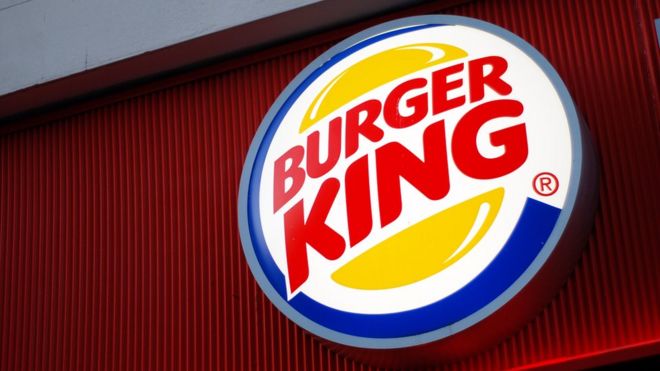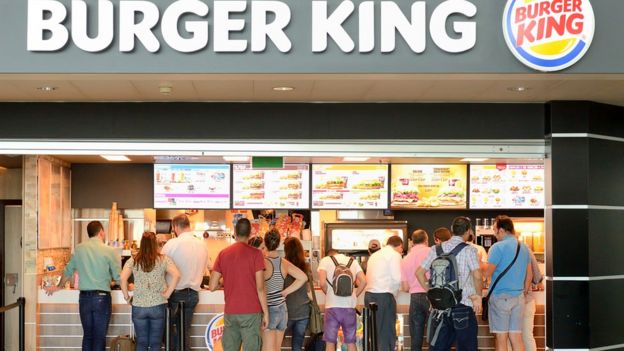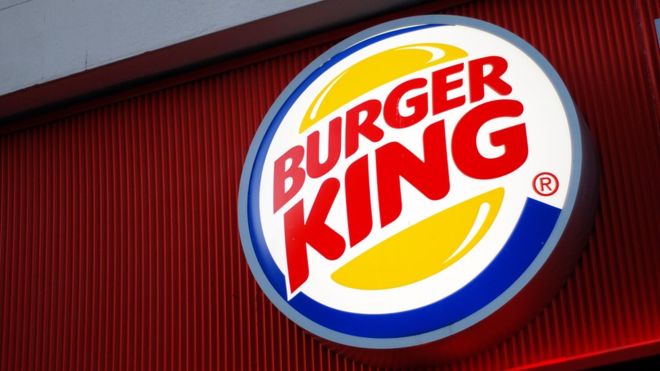
A Burger King TV advert which was designed to activate Google Home smart speakers and some Android phones to describe its Whopper burgers has been hijacked by members of the public.
The ad triggered the devices to read out information about the burgers from online encyclopaedia Wikipedia.
However, somebody edited Wikipedia to describe the Whopper as the “worst hamburger product” and another added cyanide to the list of ingredients.
The BBC understands the ad was blocked.
Google did not publicly confirm this, saying only that it had “no involvement” in the campaign.
But Burger King confirmed to the BBC that after the first iteration of the ad was blocked, it ran a tweaked version on US TV.
According to a Burger King spokeswoman, the new ad was revoiced using a “different intonation” that bypassed the ban.
In the 15-second advert, a Burger King employee asks “OK, Google. What is the Whopper burger?”
 Image copyrightGETTY IMAGES
Image copyrightGETTY IMAGESThe stunt has put Wikipedia in the spotlight after reports that Burger King’s own marketing team edited the Whopper page shortly before the ad campaign.
The history of the page shows that changes were made on 4 April by Burger King Corporation. It edited the description of the product to include the lines “America’s favourite burger” and “100% beef with no preservatives”.
This change was quickly re-edited back to the original version.
Wikipedia has not responded to requests for comment.
Invading homes
Whether Burger King expected users to go on to make their own, less flattering edits is unclear but Emily Tan, technology editor at marketing news website Campaign, thinks it might have been aware such a reaction was likely.
“Burger King has a reputation as quite a provocative brand and the idea that users are hijacking a brand can charm and amuse people. There is a chance that Burger King expected this to happen,” she said.
However, she thought it was less likely they expected the backlash from users about the intrusive nature of such adverts.
“People didn’t like this invading their living rooms. Studies suggest that people feel quite close to these smart speaker devices, they become a personality, and when something you regard as your friend pipes up with information that you didn’t ask for, that creeps people out.”
The stunt has also renewed concerns about voice-activated home speakers being used for advertising.
While Burger King said that it “saw an opportunity to do something exciting with the emerging technology of intelligent personal assistant devices”, others feel it should have acted with more caution.
“Brands are always keen to jump on the newest technologies to engage their audience and sometimes this means mistakes are made.,” Justin Pearse, managing director of Drum Studios, an arm of marketing news website, The Drum told the BBC.
“While it’s crucial brands have the bravery to experiment with new ad models, such as voice-activated advertising, it’s also vital to do this with caution.”
Google and Amazon are currently engaged in a battle over who will dominate the new voice-activated AI-enabled smart assistant market.
Both rely on their products to help sell more products, with Amazon’s Alexa recommending discounts and offers to users.
Previously Google came under fire when Google Home began playing out information about new film Beauty and the Beast. Google denied the material was an advertisement but removed it anyway.
“Voice-activation is the new frontier for advertising and will provide incredible benefits for brands and consumers alike,” said Mr Pearse.
“But like any new frontier, it pays to tread with caution. Brands need to consider how consumers will react rather than just what the technology can do.”
[Source:-BBC]





